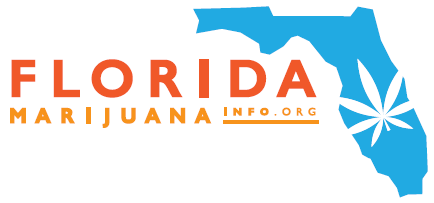The recent passage of Florida SB 1030, the Compassionate Medical Cannabis At of 2014, is seen as a boon for physicians and patients suffering certain afflictions. Most Floridians however may not realize that the passage of the bill could also be a benefit for major universities as well.
Tropical temperatures and millions of fertile acres have made Florida a leader in agriculture in the United States. In fact, Florida is second only to California in the production of greenhouse and nursery products and ranks first in the production of indoor plants. Now the institutes which study and teach agricultural farming are looking at another greenhouse crop to add to its extensive list: Cannabis.
How are universities involved with Medical Cannabis?
A lesser-known part of the SB 1030 passage is the section dealing with Marijuana Research (ss. 385.211). This statute allows “medical centers recognized pursuant to s. 381.925 (to do) research on cannabidiol and low-THC cannabis. This research may include, but is not limited to, the agricultural development, production, clinical research, and use of liquid medical derivatives of cannabidiol and low-THC cannabis for the treatment for refractory or intractable epilepsy.”
Interestingly, s. 381.925 that determines which medical centers are recognized, deals only with determining the Excellence of Cancer Center Awards for medical centers. However, further down in SB 1030, ss. 385.211 details the responsibility of the Department of Health in overseeing all aspects of the SB 1030 law, including the power to “Create a network of state universities and medical centers recognized pursuant to s. 381.925.” in order to “enhance access to investigational new drugs for Florida patients through approved clinical treatment plans or studies.”
Public Monies Used For Cannabis Research In Florida
If you are wondering how the research at a public university may be paid for, that too is covered in Section 3 of ss. 385.211 which states: “Current state or privately obtained research funds may be used to support the activities described in this section.” Additionally, $1,000,000 has already been appropriated for this fiscal year to the Department of Health’s James and Esther King Biomedical Research Program for the research of cannabidiol and its effects on intractable childhood epilepsy.
Which Florida Universities Are Involved in Cannabis Research?
In order to apply for the funds, the bill requires that a state university must have received approval from the FDA for an exploratory investigational new drug study of cannabidiol and its effects on intractable childhood epilepsy. The Biomedical Research Advisory Council must advise the State Surgeon General as to the direction and scope of such research and the awarding of research funding.
Currently, no universities or their affiliates have been designated for the research. The University of Florida’s Shands Hospital research facility, which as an Excellence of Cancer Center Award recipient, as well as the state’s main agricultural research university, makes it a natural to apply, did not respond to an interview request. However, even with the approval processing and funding, there could be reluctance among higher institutions to broadcast participation – federal law.
Florida Approval of Medical Cannabis vs. Federal Law
According to American for Safe Access, (the oldest and largest organization working to provide safe access to cannabis for research and medicine), under federal law marijuana is treated like every other Schedule 1 controlled substance, such as LSD and heroin. Schedule 1 classification means that the federal government views marijuana as highly addictive and having no medical value. Doctors may not “prescribe” marijuana for medical use under federal law, though they can “recommend” its use under the First Amendment. Even with state’s rights and new medical marijuana laws, challenges could keep universities from applying for the research monies.
“Remember,” says attorney David Shiner, Managing Partner and Medical Marijuana Business Attorney, “even those who become approved and licensed in Florida, even something as simple as a phone call could result in criminal prosecution for wire trafficking, due to the status of marijuana as a Schedule 1 regulated drug according to Federal Law.”
Looking to Learn About Cannabis From the Experts?
Currently, those interested in education courses for the medical marijuana industry are able to take courses on line. One such education provider is the Cannabis Training Institute. Partnered with Americans for Safe Access, the on-line institute offers 15 – 20 minute modules on the science, law, cultivation, background and business of the medical marijuana industry. Adult students can go from beginner courses up to full certification.
“Until the classification change from Schedule 1 federal status, major universities will most likely not offer the courses,” says Kelly Caldwell Sachs from the Cannabis Training Institute (CTI). “CTI offers the courses for those adults interested in becoming involved in the industry, and also those looking to become more educated about the medicinal benefits of the plant. Full certification will provide the graduate with industry recognition of the use of best practices.” CTI is able to legally offer all courses because no actual plants are handled. Indeed, for those students residing in Florida, CTI would not recommend even purchasing equipment to start a grow house as it “will attract negative attention,” says Sachs.
You have your marijuana certification – now what?
And for those certified graduates who are residing in Florida?
“Once the law changes in Florida, this will be the most regulated state in the country, and they will specifically look for those who are most knowledgeable of the industry and using best practices,” continues Sachs.
Meanwhile, the cultivation of medical marijuana in Florida for medicinal purposes, as well as the hands-on educational programming, will have to wait – for now.














 OMD Agency
OMD Agency
Recent Comments